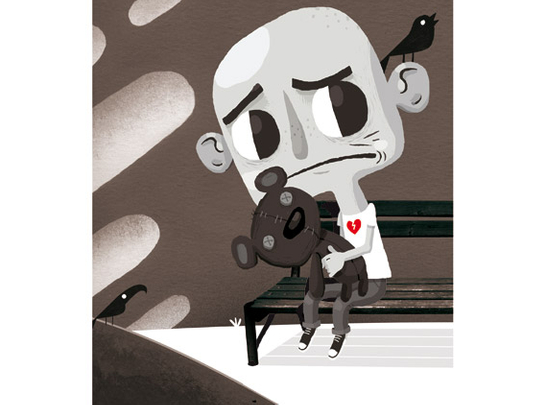
One afternoon as I was with my daughter in the local park, I saw a child playing on a slide. He was alone, climbing up the slide in the opposite direction. He was playing but stepping over the children on the steps with no supervision.
It grabbed my attention, mostly because he was not communicating well and could not follow the directions that were given to him. It made me curious, as to whether he is a child with ‘special needs'. I could see several maids around but none supervising. I asked one of them if she accompanied the child and she responded ‘no'. However, she confirmed that he is a child with special needs and pointed to the caregiver. The caregiver who was a maid, was busy talking to her friends without looking after him. She replied that she was watching him, but she was not. I told her that the child can put other children at risk and can be at risk himself. In addition, the parents had trusted her and would hold her responsible.
The questions that need to be asked here are: Should we hold her or the parents accountable? Should we consider this child abuse or child neglect?
Although child abuse and child neglect have different meanings, they are both associated with maltreatment of a person, psychologically and emotionally. ‘Child abuse' is a misuse of power, done by an adult/caregiver, usually causing harm.
On the other hand, ‘child neglect' is a type of child abuse, a deliberate or unintentional act of a parent/caregiver who fails to give proper care/attention to the child. When a caregiver does not prevent the harm to the child, it is considered neglect as well.
Child abuse may be physical, verbal/emotional and sexual, detrimental to the healthy development of a child. Physical abuse includes hitting, slapping, burning, using a weapon, etc. leaving a mark on the body which is in contrast to emotional and/or verbal abuse. Emotional abuse is inadequate caring, saying or doing things that make a child feel unloved, unwanted, unsafe, worthless, isolated, belittled, and humiliated. It may not leave visible scars but it takes a toll on the child's psychological well-being and takes longer to recover from.
Another form of abuse is sexual abuse, occuring when a person tries by force to have sexual contact for his own gratification. This includes rape/sodomy/sexual penetration and fondling. Children who have been abused often develop maladaptive behaviour, post traumatic stress disorder, guilt, self blame, poor relationship problem, aggression, self- destructive behaviour, poor self esteem and school performance, etc.
Like abuse, neglect can also be physical, emotional/psychological, educational and medical.
Punishment
Physical neglect is when a parent/caregiver does not provide the necessities for the child — food, clothing, safety, inadequate supervision, abandonment and child selling. Such neglect/rejection affect the child's growth, causing malnutrition, serious illnesses, physical harm and related injuries.
Emotional and psychological neglect occurs when a parent engages in spousal abuse in the presence of the child, allows the child to use drugs/alcohol, withholding emotions, belittling the child and using extreme punishment.
Educational neglect includes failure to enrol child in school/special education when needed, which might result in suspension from school; and allowing an older child to be responsible for his sibling's education, as it deprives the child of having his own needs met and does not allow the child to learn life skills.
Medical neglect is when the parent or the caregiver does not provide appropriate healthcare, which causes serious and significant deterioration and places the child at risk of dying. The neglect can happen during pregnancy — when a parent uses alcohol or drugs. Besides, malnutrition which has a detrimental effect on the child's health and well-being. The first year of life for children is very important as it can affect other areas of development — psychological, social, behavioural and intellectual. Neglect might not be recognisable most of the time, unless in some extreme cases, depending on its frequency, duration and severity.
The effects of child neglect are quite detrimental to the brain. It increases the risk of developing a variety of psychological and behavioural problems, like depression, attention deficit, hyperactivity disorder (ADHD), delinquency, stress and antisocial behaviour, feeling of loneliness, isolation, and low self esteem. Early intervention results in better recovery.
In order to discipline children, we must demonstrate care and love for them, teaching them to differentiate between right and wrong and to make healthy choices in a respectful, balanced way. Every parent should teach children logical consequences for their behaviour, as it helps them be responsible and accountable for their actions.
Child abuse and neglect happen at all economic status levels, within good and bad families, within all education levels, involving family members as well as strangers. It takes a moment for that child or any child to get injured — the regret and guilt will last long and is difficult to overcome.
Thinking back to the child I saw in the park makes me very aware that each of us has a responsibility to protect children and should not turn a blind eye when a child behaves strangely or has marks and bruises.
Dr Fekreya Arjamand is a Psychological Services Manager at Dubai Foundation for Women and Children and a Clinical Psychologist.







